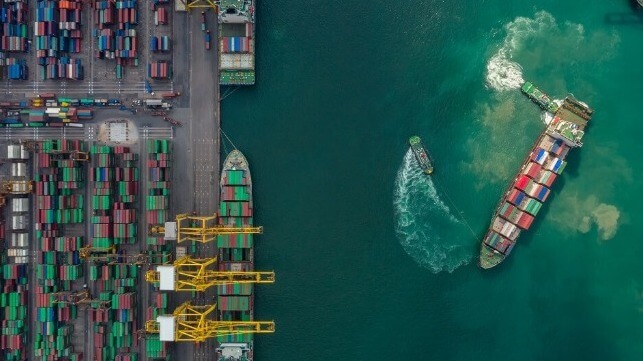G7 Attempts To Accelerate The Energy Transition With Big Solar And Wind Promises
The leaders of the world’s top seven rich countries have agreed to speed up the energy transition by setting more ambitious targets for wind and solar power.
The G7 leaders also agreed to accelerate the phaseout of fossil fuels although they stopped short of setting a deadline for the phaseout of coal, Reuters reported.
"In the midst of an unprecedented energy crisis, it's important to come up with measures to tackle climate change and promote energy security at the same time," Japan’s minister of industry said, as quoted by Reuters.
“The United States and all the developed world has the responsibility to help the developing world through this crisis,” U.S. climate envoy John Kerry told the AP.
“Those countries will really determine what happens. If they will reduce, if they will take the lead, if they will start deploying the new technologies, if they will stop using unabated fossil fuels, we’ll up the chance of winning this battle.”
The main commitments of the G7 were a boost of offshore wind energy generation capacity by 150 gigawatts and a similar boost to solar capacity, to over 1 terawatt.
While all G7 members were firm on the issue of a coal phaseout, they appeared unable to agree on a single deadline for that. Canada and several other G7 members committed to a coal phaseout by 2030 but others refrained from making such a commitment.
"Others are still trying to figure out how they could get there within their relevant timeframe," Canadian resource minister Jonathan Wilkinson said.
Opinions differ on other fossil fuels as well. Japan, for one, is almost entirely dependent on fossil fuel imports to satisfy its energy needs and fossil fuels. Because of that, the country has insisted that LNG is accepted as a transition fuel for at least 10 or 15 years.
By Irina Slav for Oilprice.com
G7 Nations Pledge to Support Decarbonization of Shipping

The G7 Energy and Environment Ministers’ meeting in Sapporo Japan ended on Sunday, with new announcements being made to accelerate adoption of offshore energy and clean fuels in the transport industry.
In a 36-page communique, the G7 ministers laid out their climate and energy commitments in hope of advancing a global green transformation. The G7 members - Canada, France, Germany, Italy, Japan, the U.K, the U.S plus the European Union - account for around 40 percent of the global economy, 30 percent of energy demand and 25 percent of energy system CO2 emissions. For this reason, the G7 is considered an important forum for reducing emissions from carbon intensive industries, like shipping.
During the weekend meeting, the G7 ministers reiterated the importance to significantly increase the pace and scale of deployment of renewable energy. The G7 has so far contributed in expanding the renewable energy base, specifically through a collective increase in offshore wind capacity of 150 GW by 2030 based on each country’s existing targets.
However, the ministers concurred with the findings of the International Renewable Energy Agency (IRENA) that the existing renewable power deployment rates globally are insufficient to keep 1.50 C within reach.
To prop up further renewable energy development, the ministers agreed to promote improvement in innovative technologies such as floating offshore wind power, wave energy and in standard evaluation methods for introducing new technologies.
“We will also ask IRENA to prepare analysis on innovation and sustainability of floating offshore wind. In addition, we will steadily improve energy system flexibility including through mini-grids and modernized utilization of energy storage system systems including battery storage,” states the communique.
Most importantly, the decarbonization of the shipping industry got a major boost, with the ministers pledging to support introduction of intermediate targets for 2030 and 2040 for the revised IMO GHG reduction strategy during the upcoming IMO’s 80th Session of the Marine Environment Protection Committee (MEPC 80).
“As part of other multilateral cooperation, we pledge to support the establishment of at least 14 green shipping corridors involving G7 members by the middle of this decade to promote uptake of zero and near-zero emission vessels and fuels and the development of decarbonized ports,” says the communique.
No comments:
Post a Comment